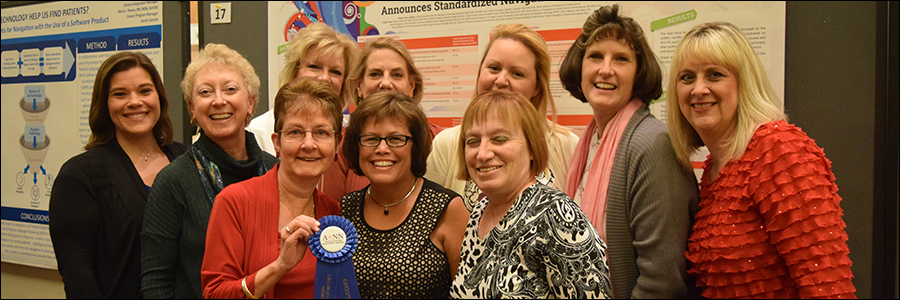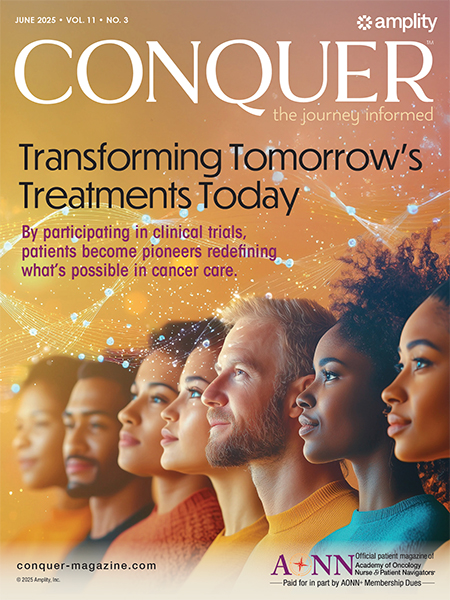The morning began with a breakfast N.E.X.T. Day session sponsored by Bristol-Myers Squibb. Peg Esper, DNP, ANP-BC, AOCN, discussed Opdivo (nivolumab) therapy, which is a fully human monoclonal antibody indicated for previously treated metastatic non–small-cell lung cancer. She reviewed the CheckMate 057 study, which looked at standard-of-care therapy, docetaxel, and Opdivo. The latter therapy showed a longer duration of response for tumor shrinkage both expression and nonexpression.

She then briefly discussed CheckMate 017, a phase 3 clinical trial. The study looked at the aforementioned therapies, docetaxel and Opdivo. The latter therapy met its study end point after 12 months. Esper closed emphasizing the importance of understanding that with immuno-oncology therapies, it may be beneficial to have patients carry a card listing potential side effects related to these agents, especially in the event they do experience a side effect and need to seek medical care.
Understanding Multiple Myeloma
The next session was sponsored by Takeda Oncology and was presented by Colleen Earley, RN, BSN, OCN. Earley detailed an overview of multiple myeloma, including its pathophysiology and incidence rates. She also discussed evaluating laboratory tests for diagnosis, risk stratification, and other aspects of patient management.
She discussed using CRAB (calcium elevation, renal insufficiency, anemia, and bone lesions) criteria for earlier diagnosis of multiple myeloma.
Earley talked about the new model for risk stratification and that it may be helpful to providers in developing a treatment plan.
She also reviewed the characteristics and factors of peripheral neuropathy and some questions to ask patients about potential symptoms. She stressed the importance of early diagnosis and possibly reversing the condition.
Although multiple myeloma is not a curable disease, Earley remarked that patients are living longer and with better quality of life on today’s therapies as well as experiencing beneficial response rates.
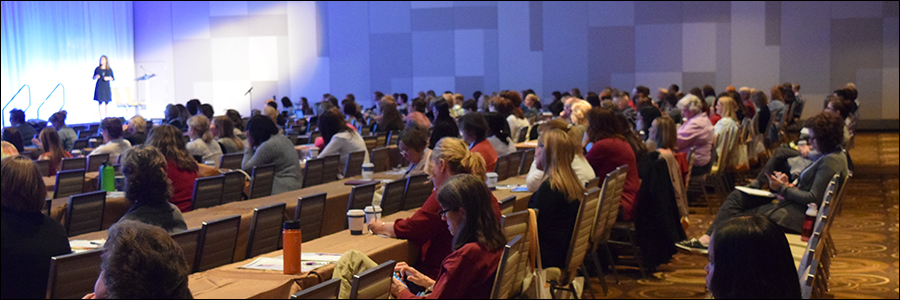
A Shared Decision-Making Approach to Managing Patients with EGFR+ mNSCLC
This N.E.X.T. Day Track was sponsored by Boehringer Ingelheim and was presented by Bridget Rossi, MSN, RN, OCN. Rossi presented on Gilotrif (afatinib), which is a first-line therapy for EGFR+ metastatic non–small-cell lung cancer (mNSCLC).
She provided an overview of shared decision-making, including the 6 principles, and why it is important in working with patients to give them a voice during the treatment continuum. The patient-centered approach keeps them involved, explained Rossi.
Rossi then segued into a discussion about a hypothetical case study. She remarked about the importance of discussing the various aspects of the diagnosis in layman’s terms, as well as the treatment options for patients. As part of the discussion between the navigator and the patient, the patient should be made aware of the proper dosage and the importance of administration.
Rossi discussed a case study using Gilotrif that showed an increased survival rate of up to 33 months. In addition, she discussed the safety profile of the therapy, and talked about a nurse support and patient education program.
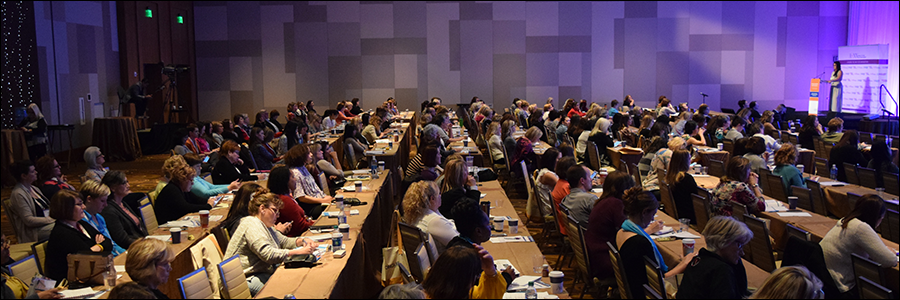
Perjeta-Based Regimen for the Neoadjuvant Treatment of HER+ Breast Cancer
This session was sponsored by Genentech and presented by Brenda Keith, MN, RN, AONCS. Keith reviewed historical breast cancer treatment protocols as well as the cultural mores during the 1960s and 1970s, and how treatment and the care team have evolved.
She segued into the benefits of neoadjuvant therapy, including decreasing the size of the tumors and providing information about tumor response to therapy. Keith talked about how Perjeta (pertuzumab) is indicated and its safety profile in the neoadjuvant setting.
Perjeta is designed to work with Herceptin for a dual HER2 blockade. Both of these therapies induce antibody-dependent cell-mediated cytotoxicity. Keith reviewed Perjeta’s safety profile in clinical trials, and offered 2 hypothetical patient examples and discussed whether these patients would be good candidates for this therapy and the dosing indications.
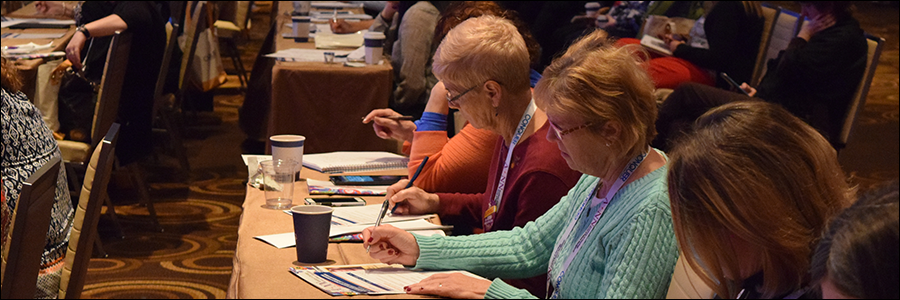
Multiple Myeloma: Considerations for Treatment Selection
This track was sponsored by Takeda Oncology and presented by Mica Green, RN, BSN, OCN. Green reviewed an overview of multiple myeloma, including comorbidities that may influence outcomes in treatment.
She talked about relapsed-refractory myeloma and how it may inform treatment decisions. Green also discussed the factors and testing for higher risk disease.
Green said it is vital to assess both the patient and their treatment options before deciding on a course of therapy, looking at factors and what patients must undergo when considering treatment options. Some of these assessment questions should include: Do they have barriers and many challenges to overcome? For treatment considerations, will the patient be able to tolerate the medicine long-term?

Tyrosine Kinase Inhibitor–Related Side Effects: Patient Coping Strategies
This track was sponsored by Bayer and presented by Ashwin Mehta, MD, MPH, and Adrienne Vazquez, MSN, ACNP-BC, AOCNP. Mehta discussed the goals of tyrosine kinase inhibitor therapy and maximizing adherence while minimizing the impact of side effects.
Mehta and Vazquez took turns discussing hypothetical cases with side effects and offered potential strategies in patient management. They both stressed using strategies to gain patient adherence.
Mehta uses motivational interviewing, and natural language markers for patient change include desire, ability, need, and commitment.
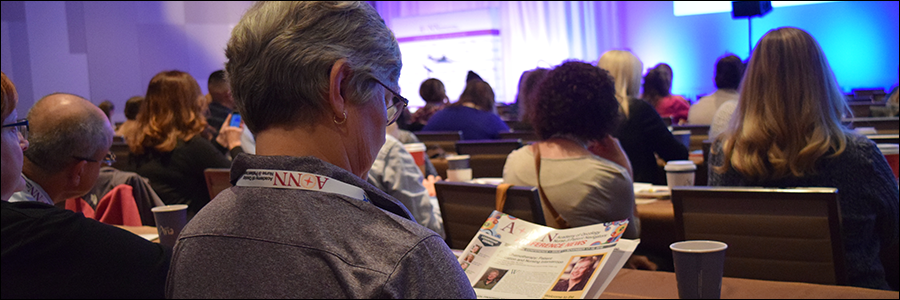
A Treatment Option for Metastatic Adenocarcinoma of the Pancreas
This track was sponsored by Celgene and was presented by Linda Moors, PA-C. Moors began by talking about the mortality rates of pancreatic cancer and remarking that it is now second behind lung cancer for mortality.
Moors talked about Abraxane plus gemcitabine in studies, and the increase in survival rates. She discussed the safety profile of the former therapy as well as the dosing indication.

Lonsurf for Refractory Metastatic Colorectal Cancer: Patient Management and Patient Education
This session was sponsored by Taiho Oncology and presented by Melissa Smith, AGPCNP-BC. Smith covered the safety profile and dosing indications for Lonsurf.
She talked about the importance of continuing patient education during treatment, including encouraging patients to be adherent to treatment.

Smith also told the audience about helpful tools and resources associated with this therapy.
In the afternoon, the Exhibit Hall opened and navigators gathered to visit with the more than 80 companies exhibiting at the conference. Along with the grand opening of the exhibits, there was a question and answer session for the conference’s posters and a welcome reception.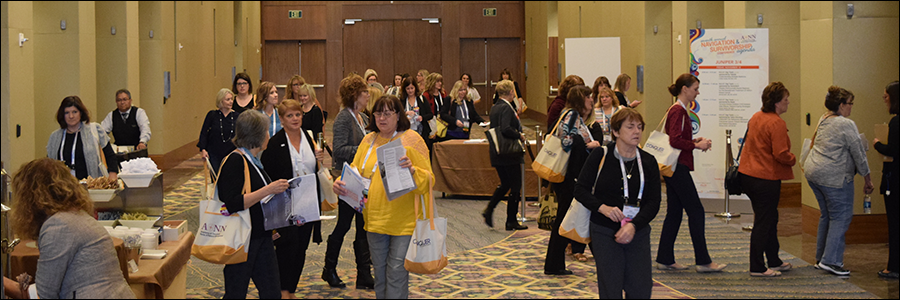
This first product theater was sponsored by Lilly Oncology, and was co-presented by James Gilroy and Andrea David. Their discussion focused on why value and quality are important in oncology. Gilroy began by stating that while the cancer incidence rate has stayed relatively static, the survival rate has increased significantly, hence showing the value of therapeutics.
Although Gilroy acknowledged there is still a way to go for a finite pathway for the delivery of value-based cancer care, he also remarked that major organizations are launching their own approach to measure and determine value.
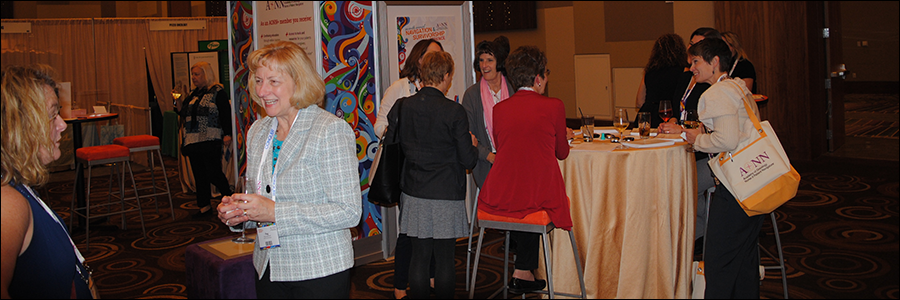
David began by showing a video about Lilly’s Journey Connections, the patient support and resource program. She provided an overview of the history of the program, and why the resource was created. She offered some insights on features of the resource and how navigators can utilize it.
CAR-T Cell Therapy in B-Cell Malignancies
This product theater was sponsored by Kite Pharma and presented by Nazy Zomorodian, NP, RNC, MSN, CUNP, CCRC. She began by providing an overview of B-cell malignancies. Non-Hodgkin lymphoma is the eighth deadliest cancer in the United States.
Zomorodian then began educating the audience on CAR T-cell therapy. She talked about the need for T-cell activation, and what it takes to activate T cells. CAR T-cell therapy is a novel immunotherapy approach that involves engineering a patient’s own immune system to reprogram their T cells to kill the tumor cells.
